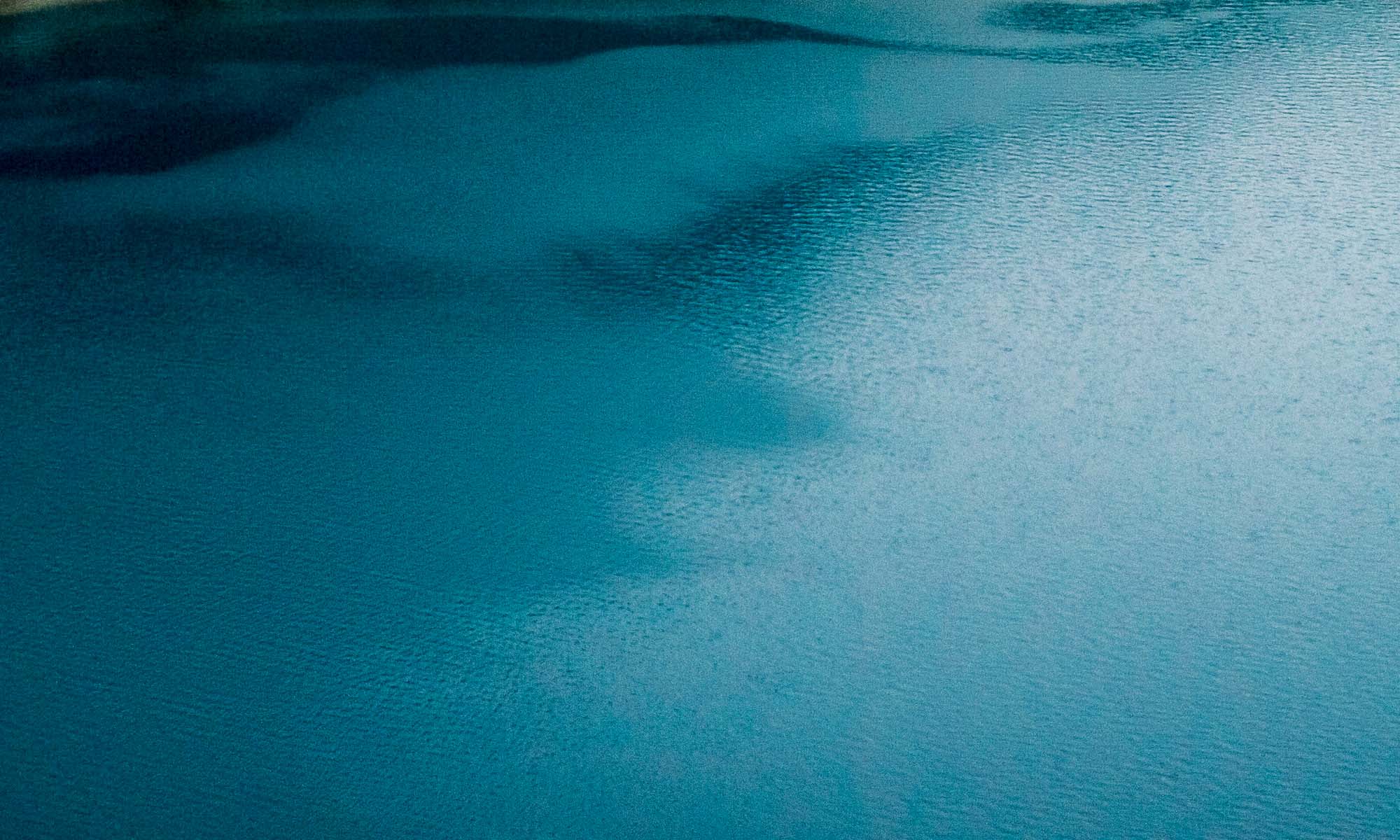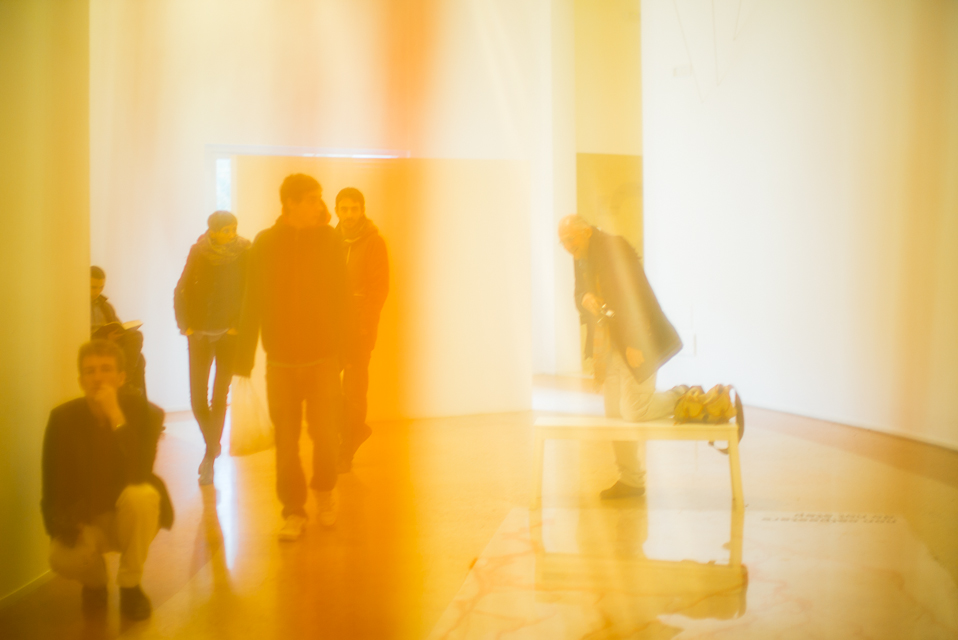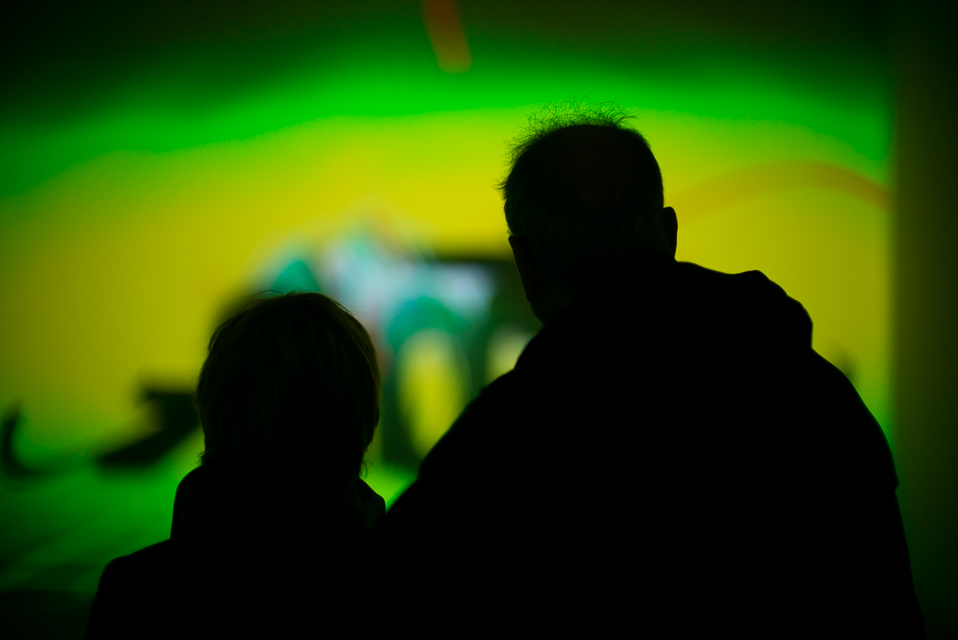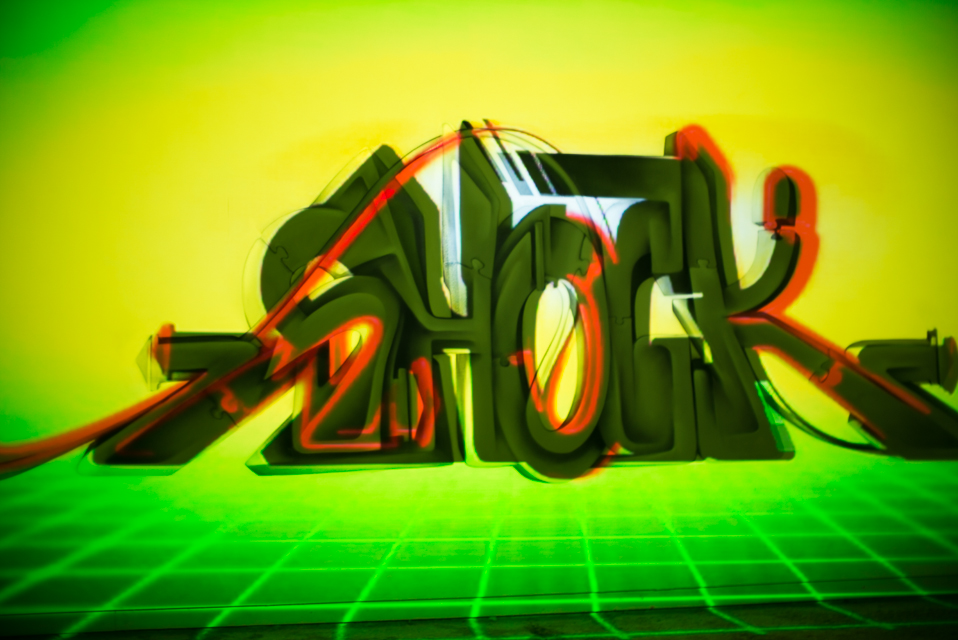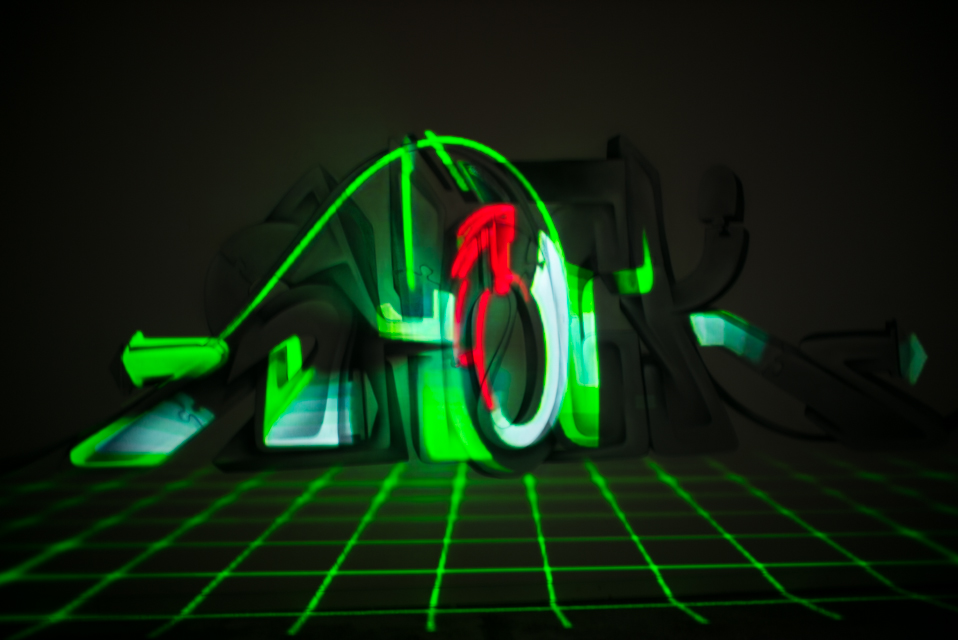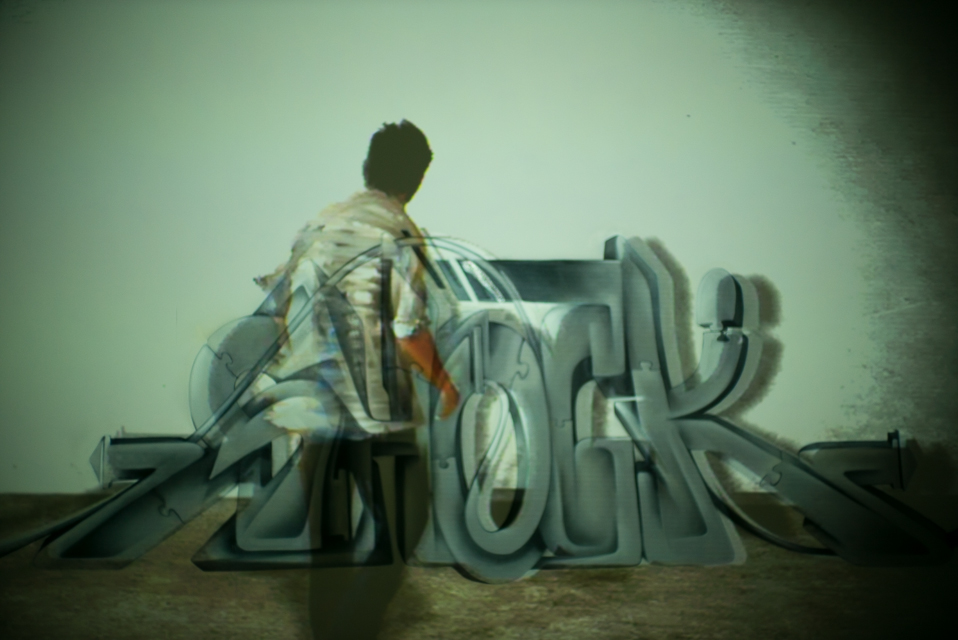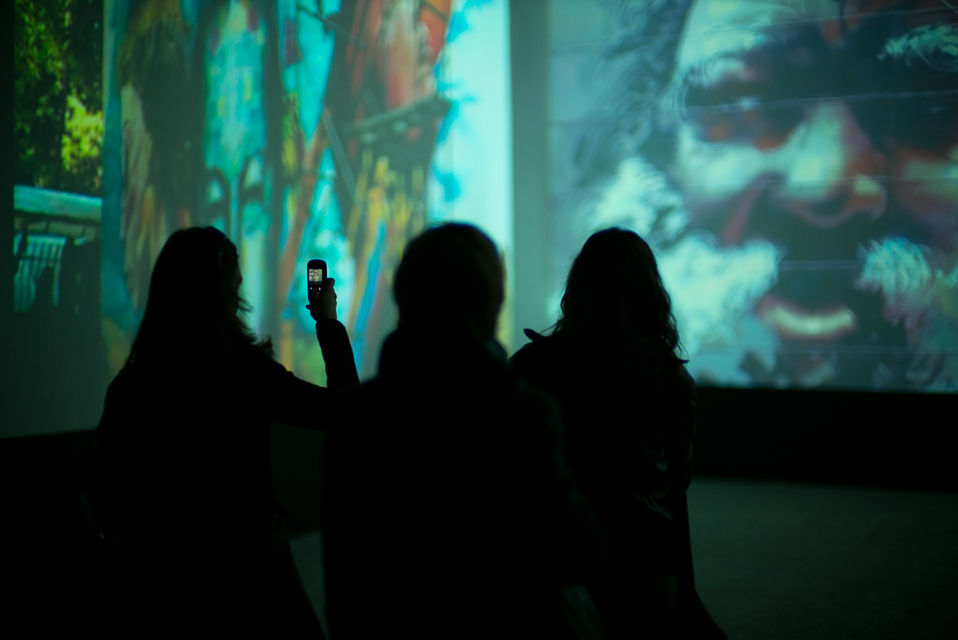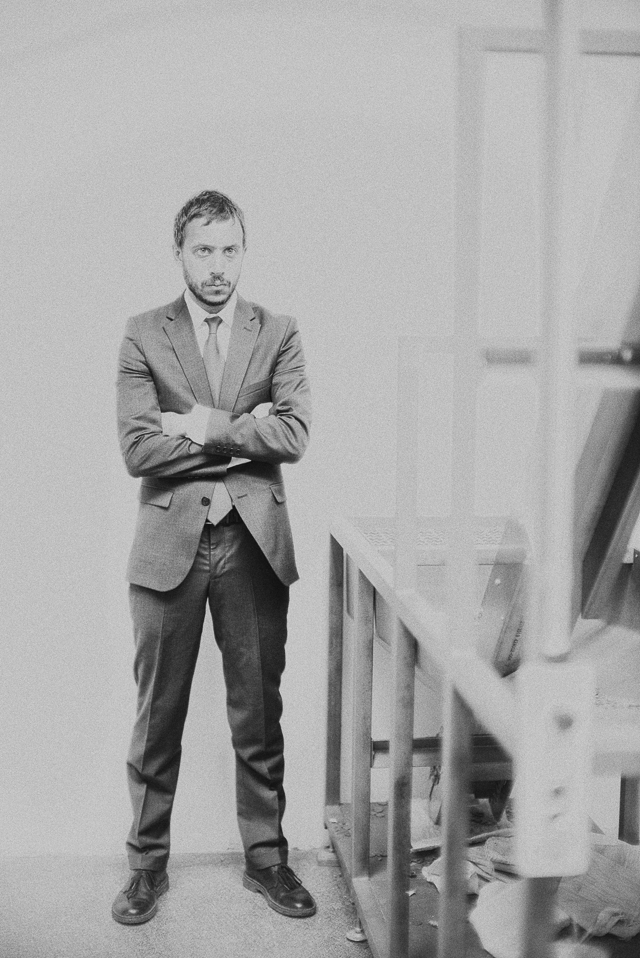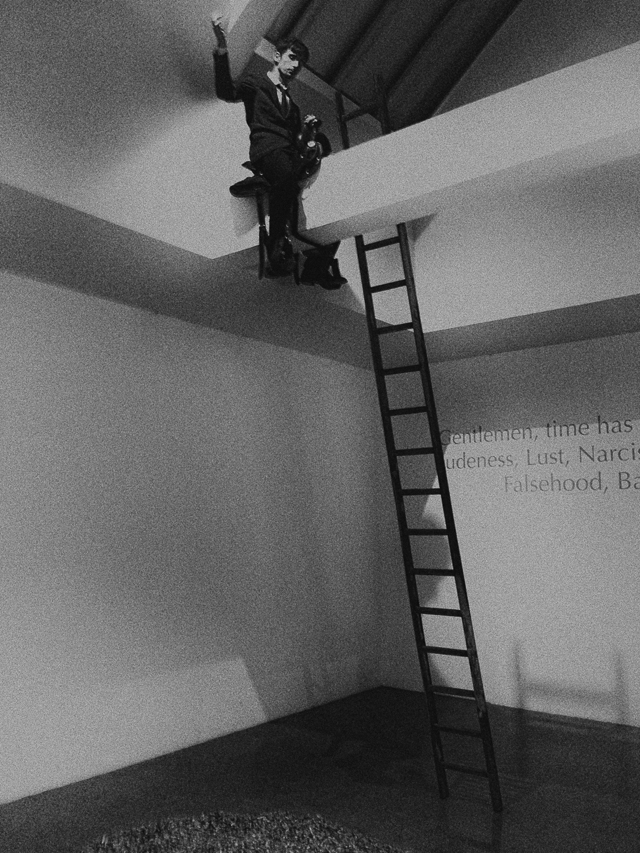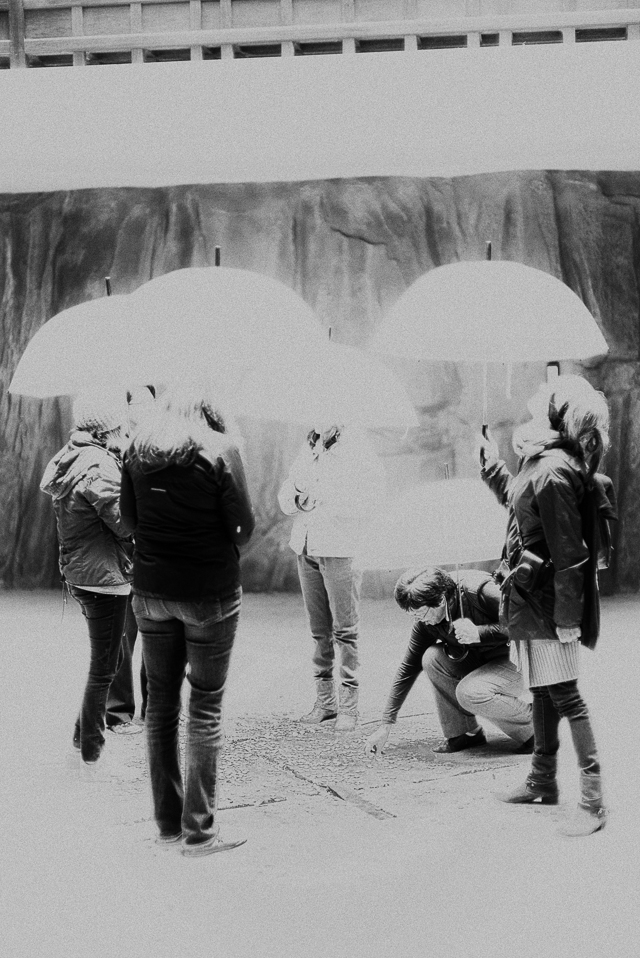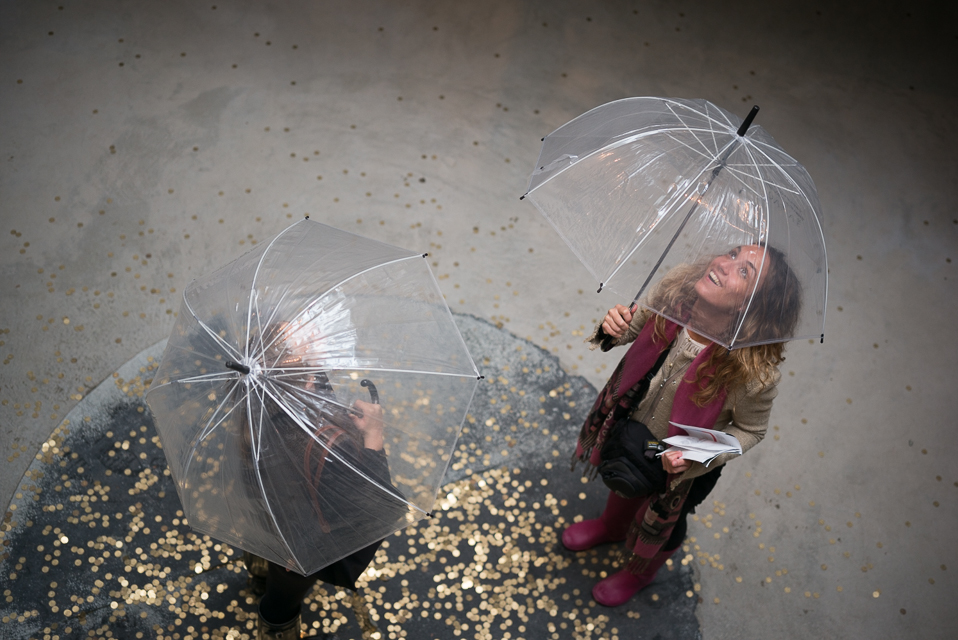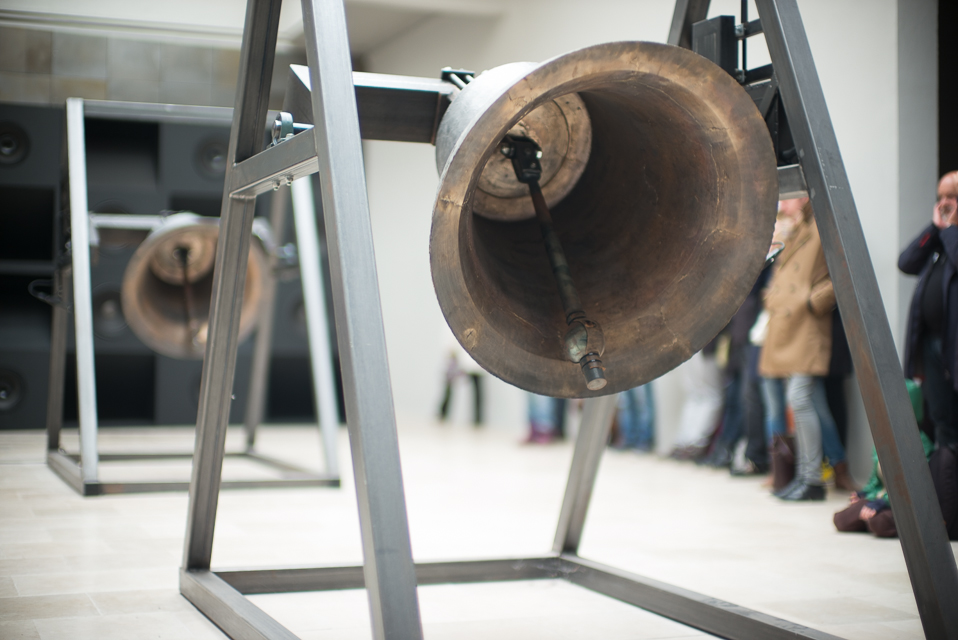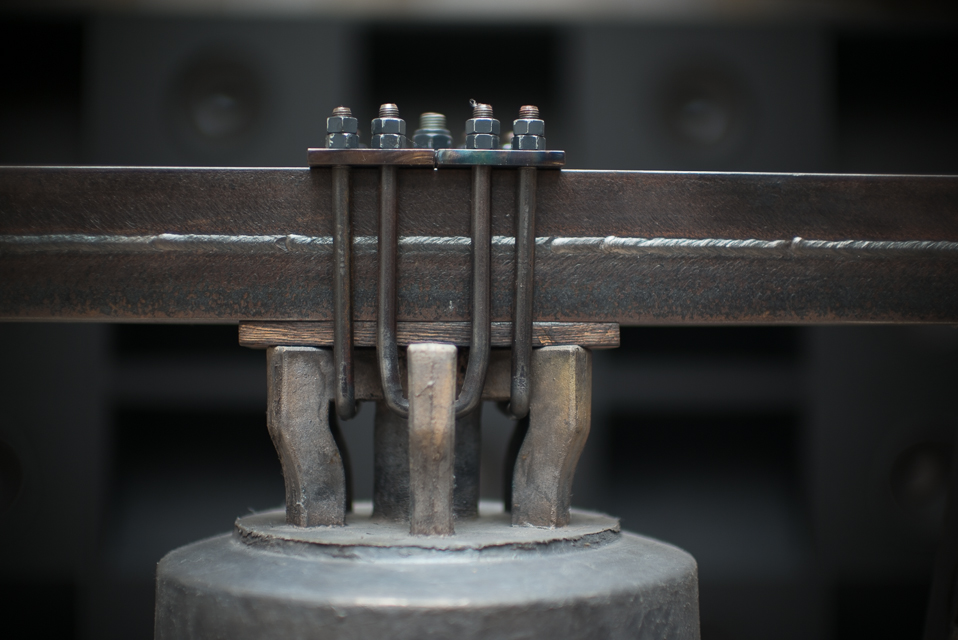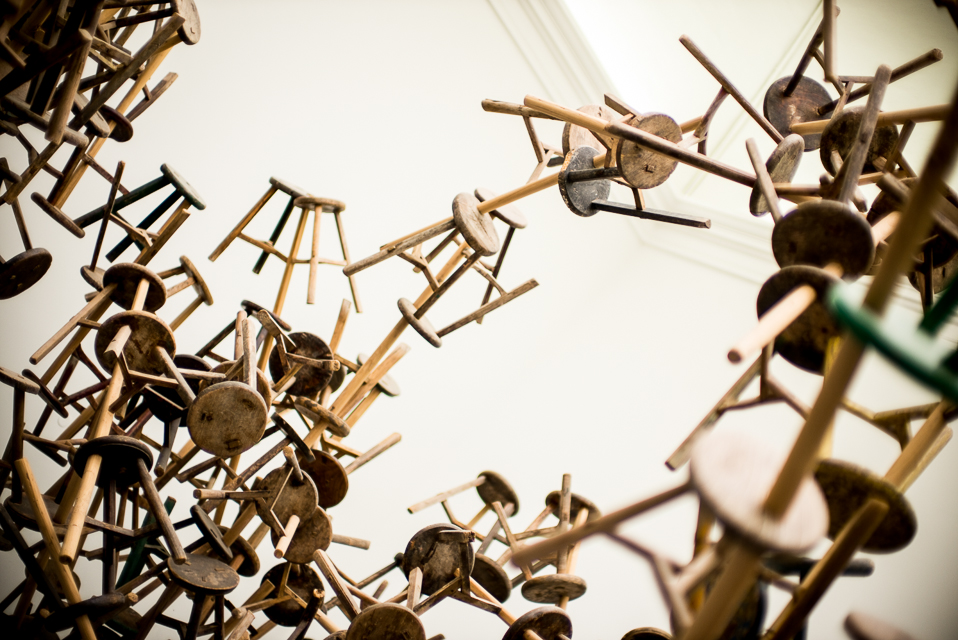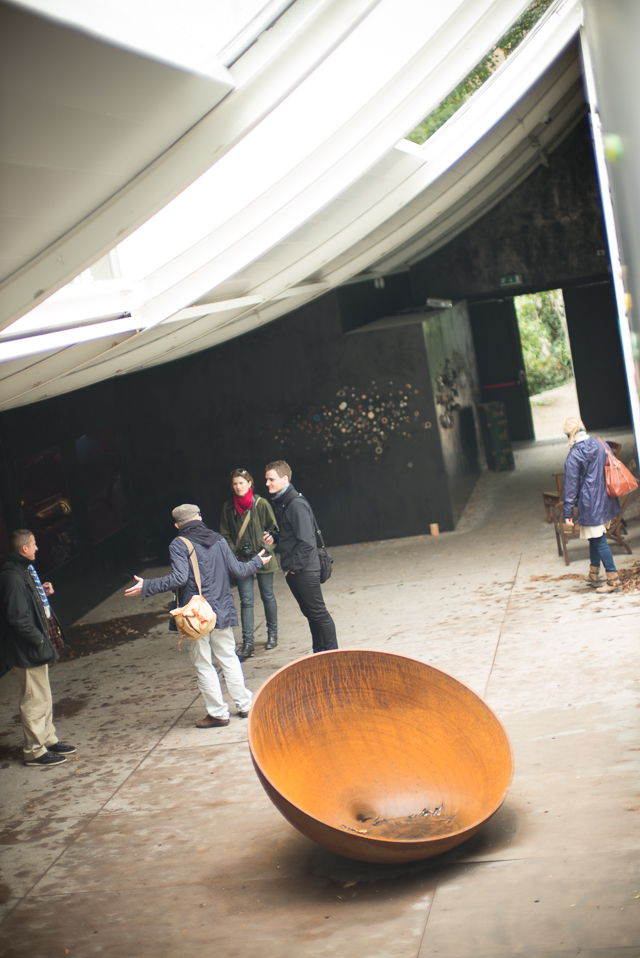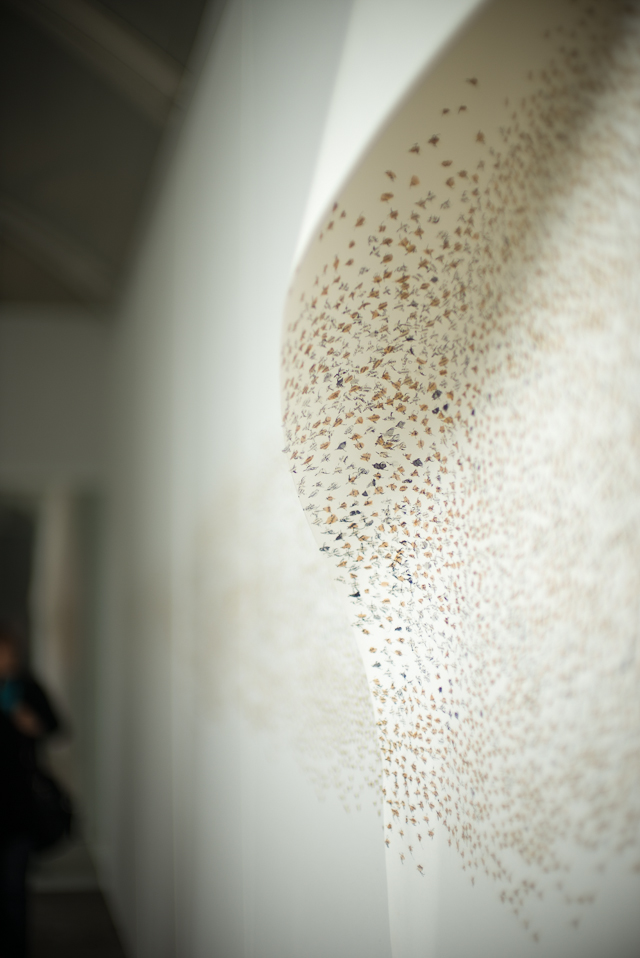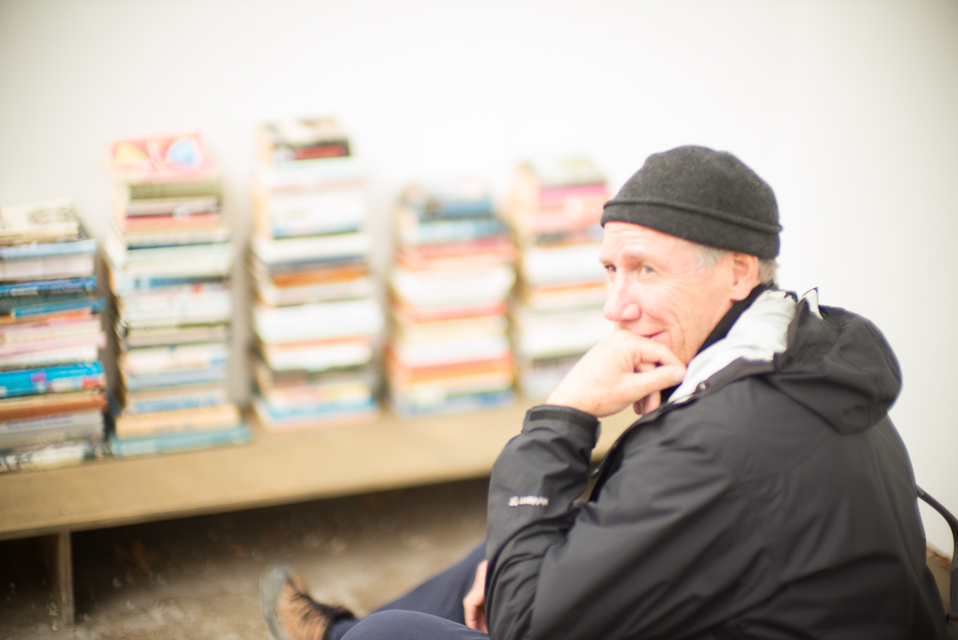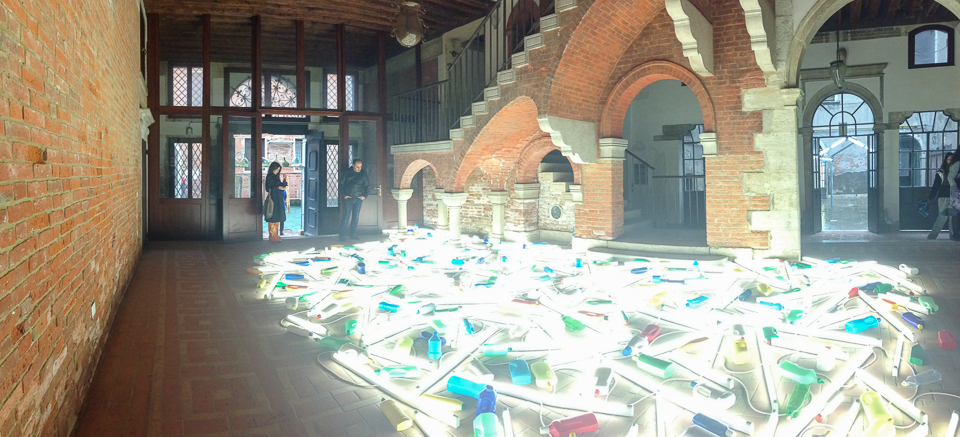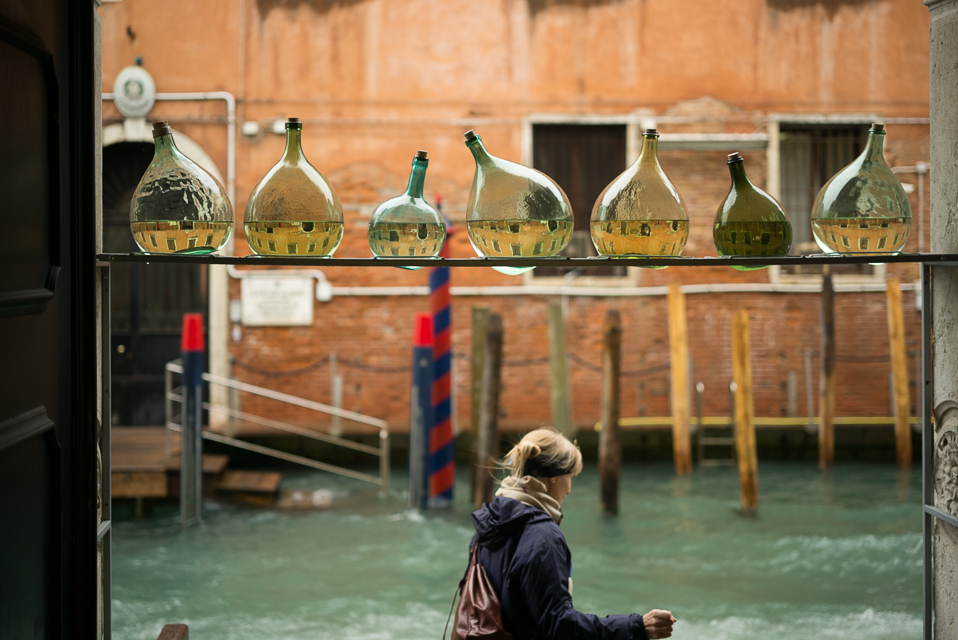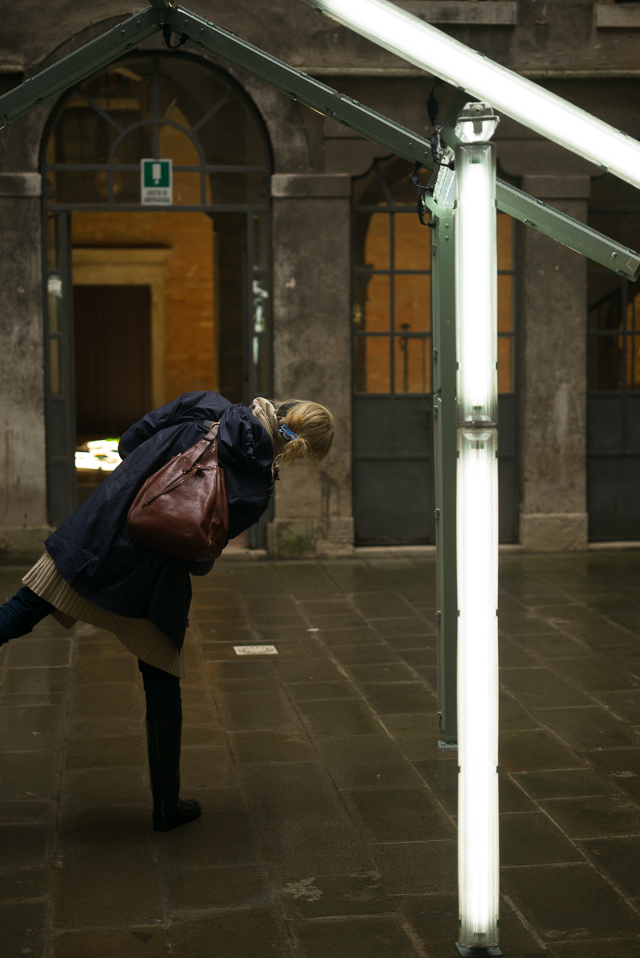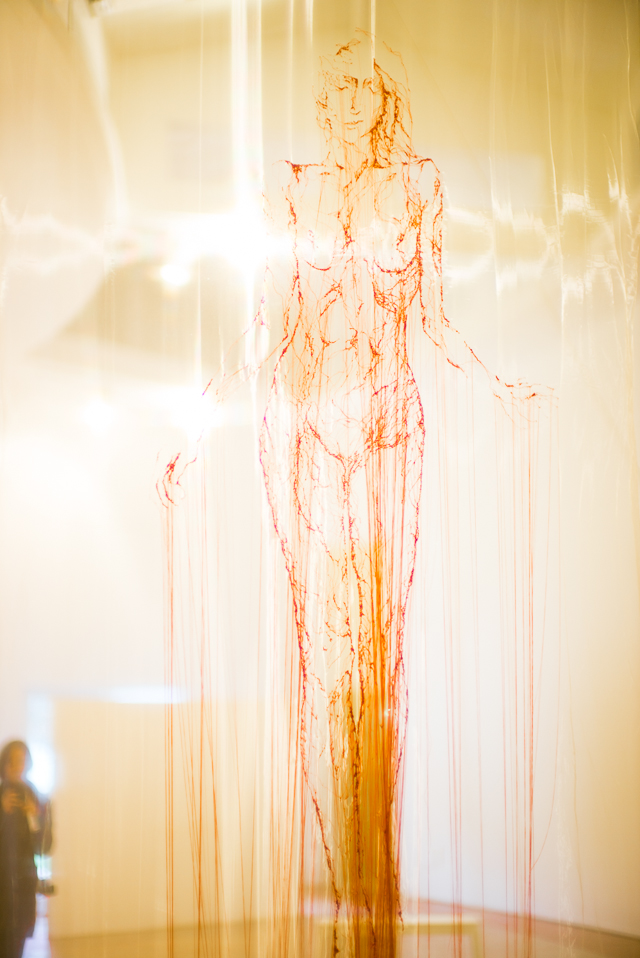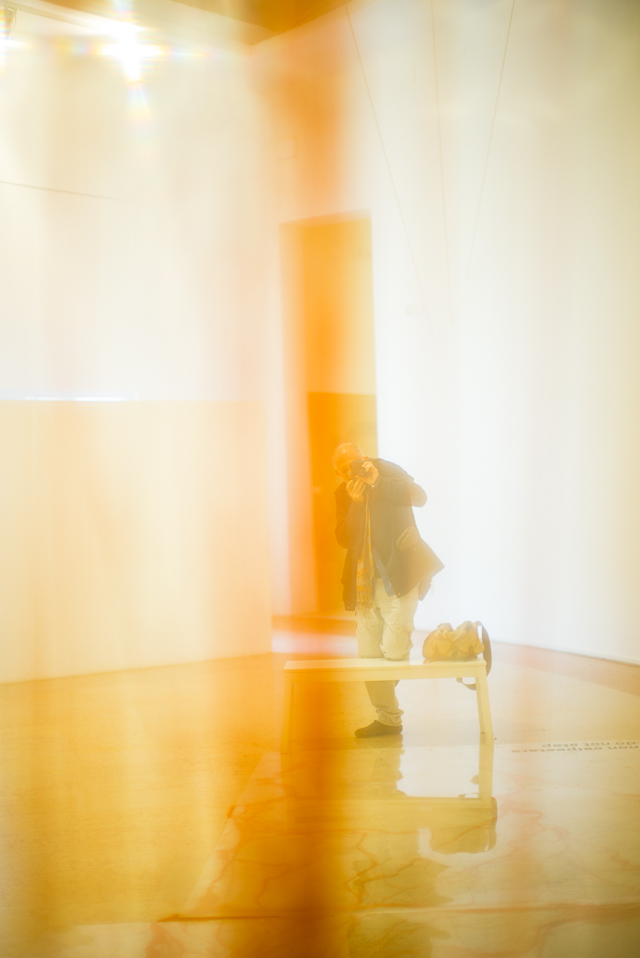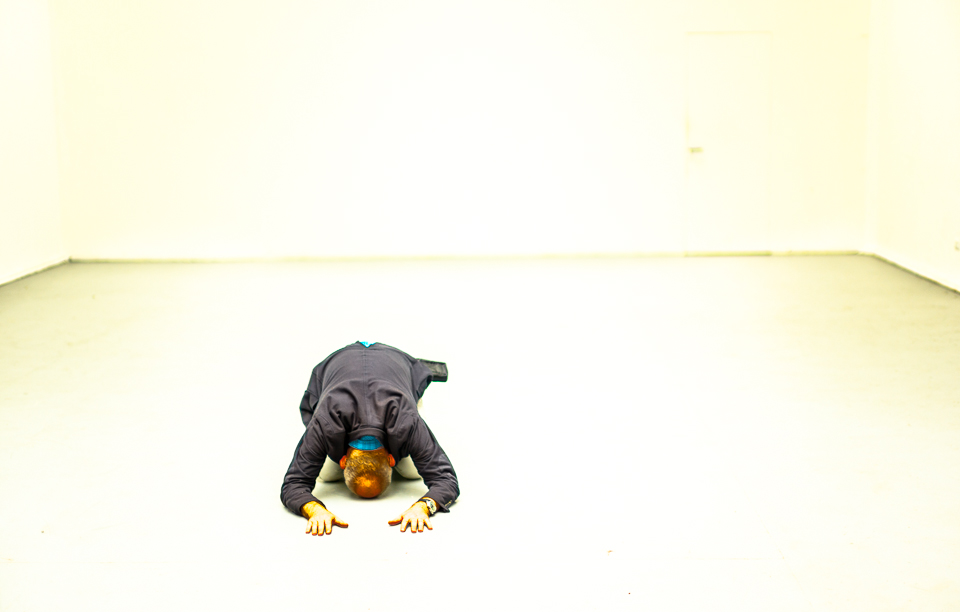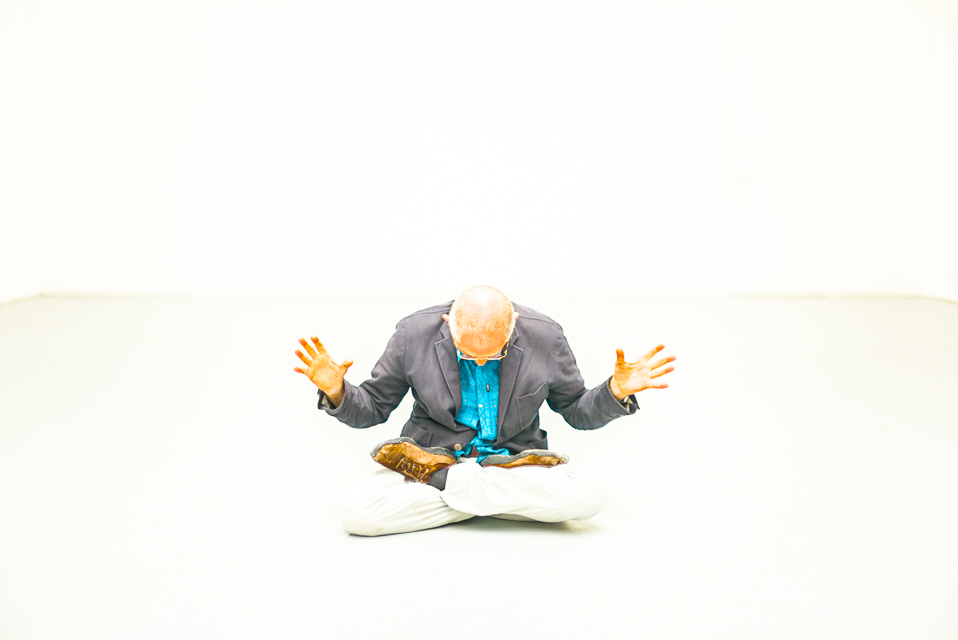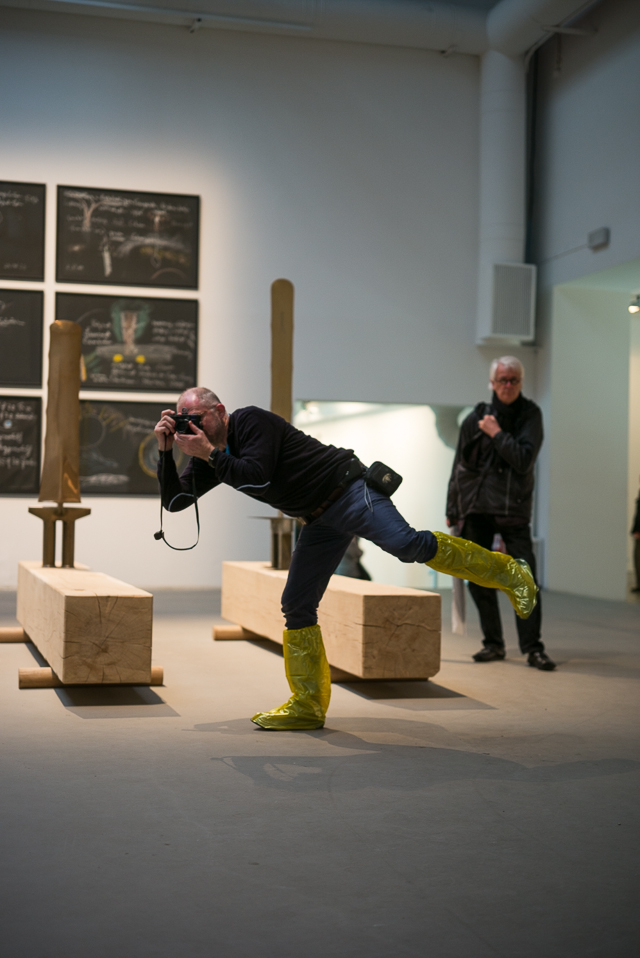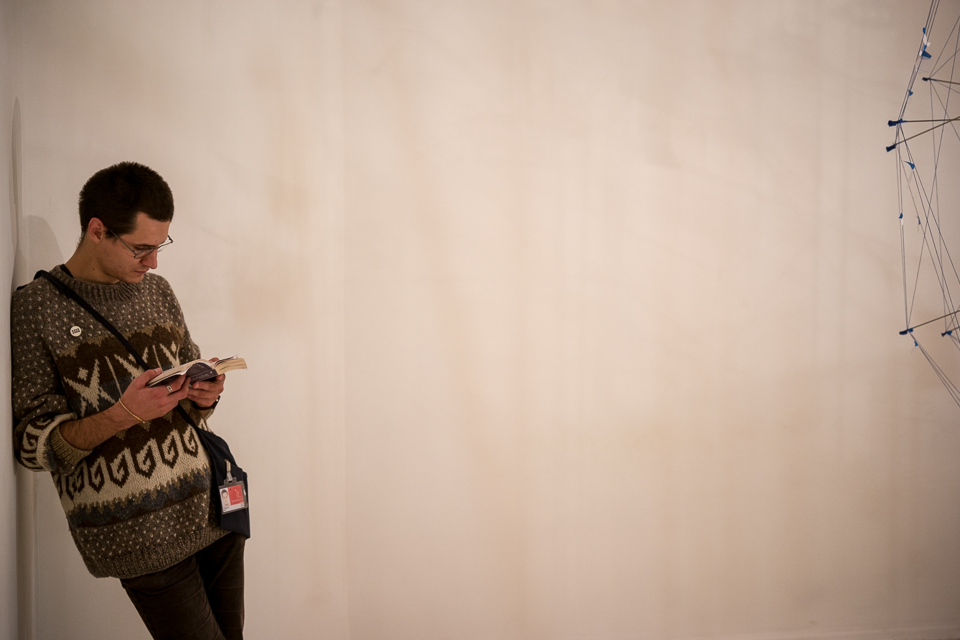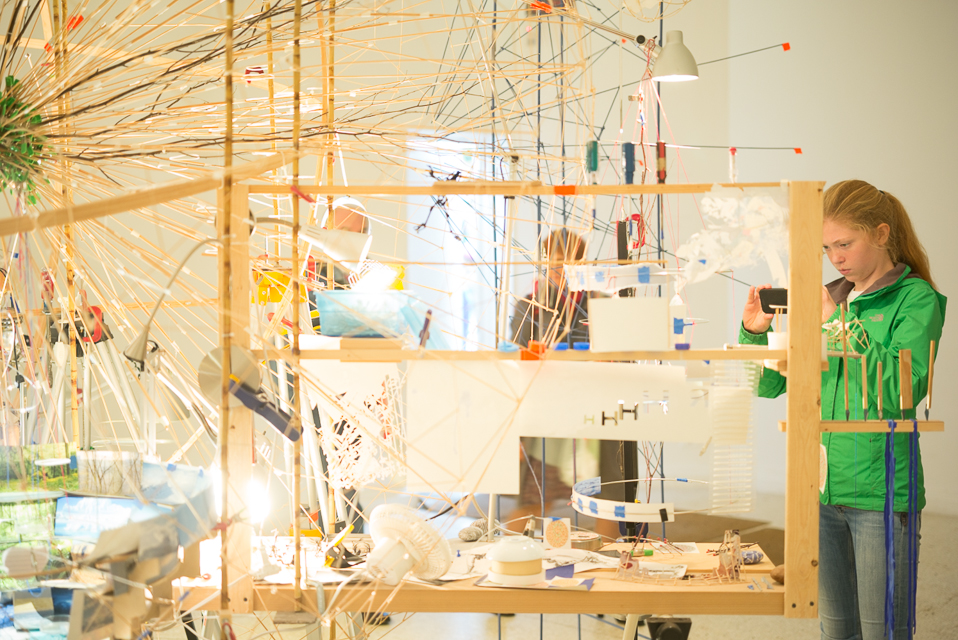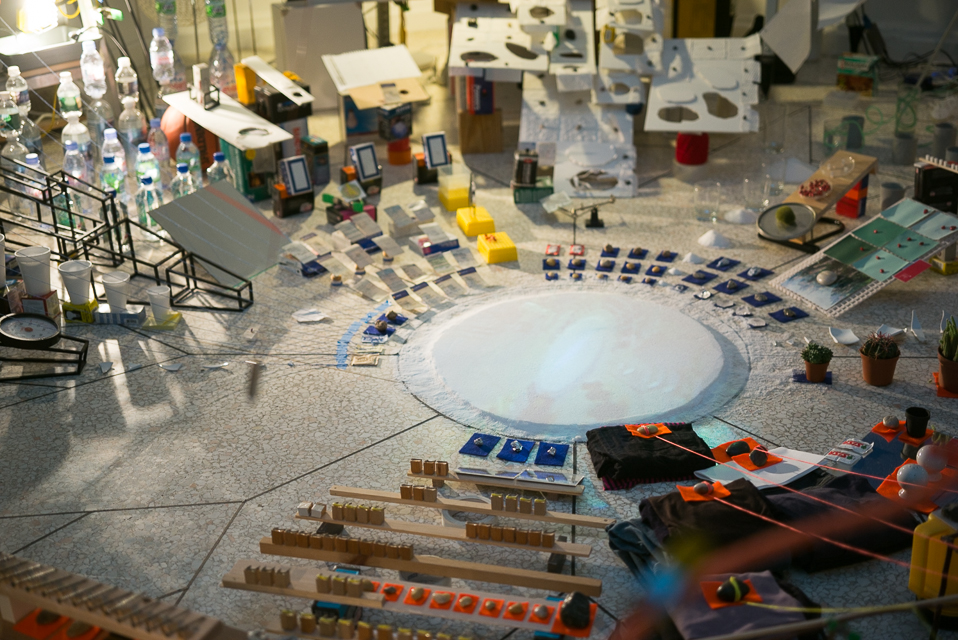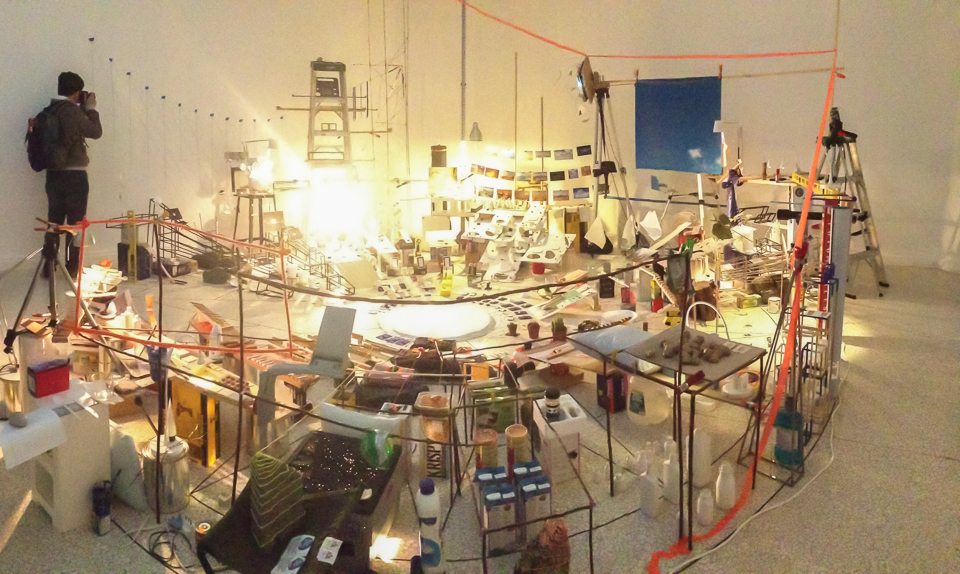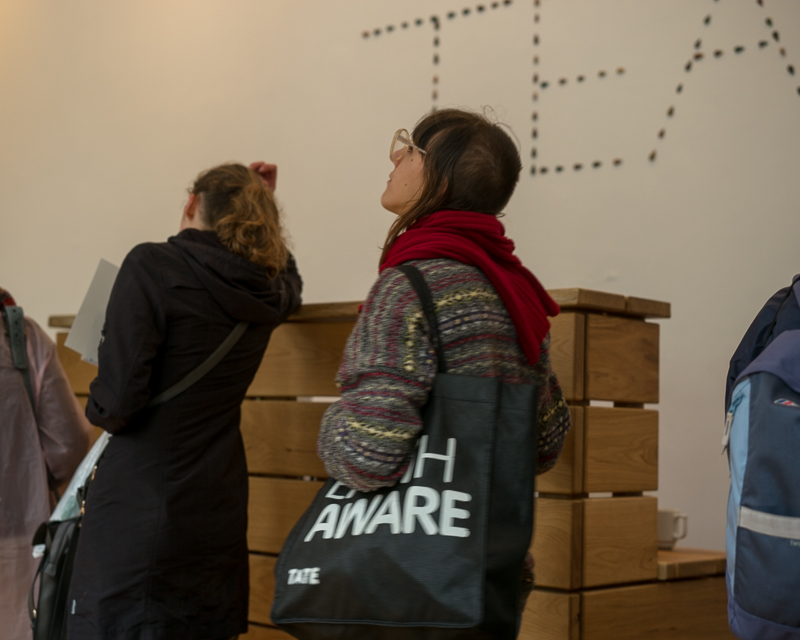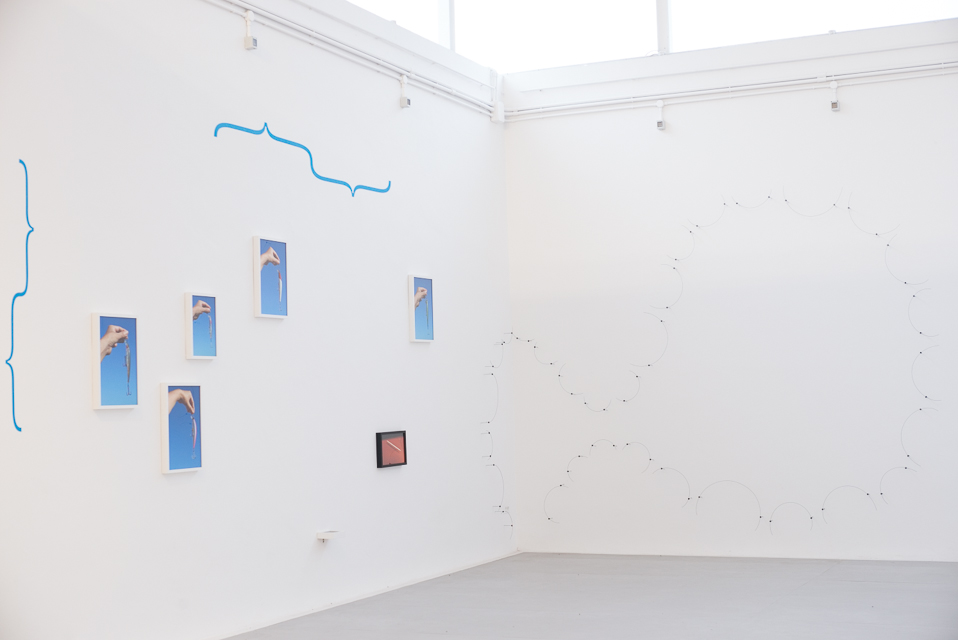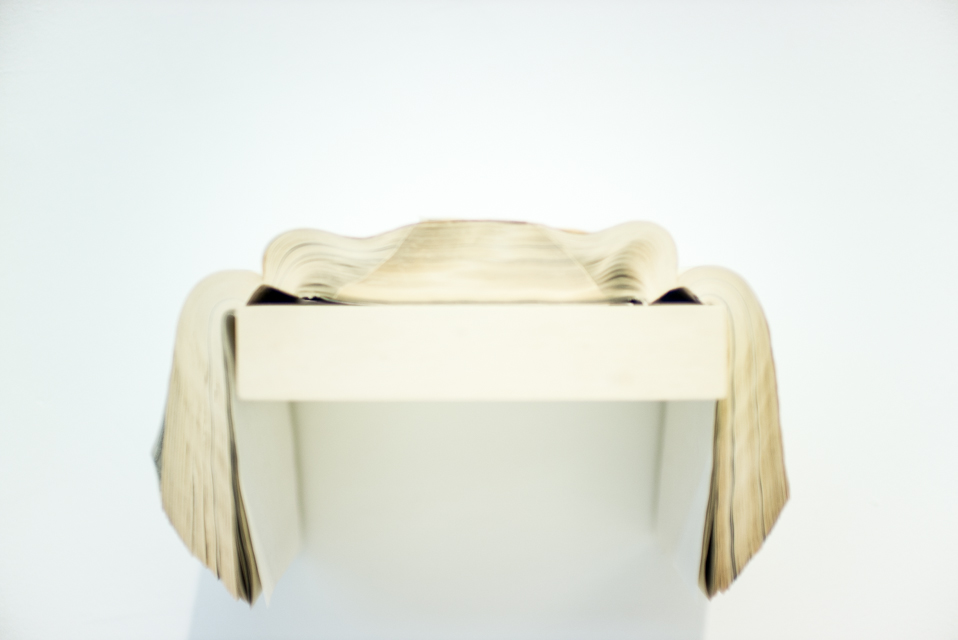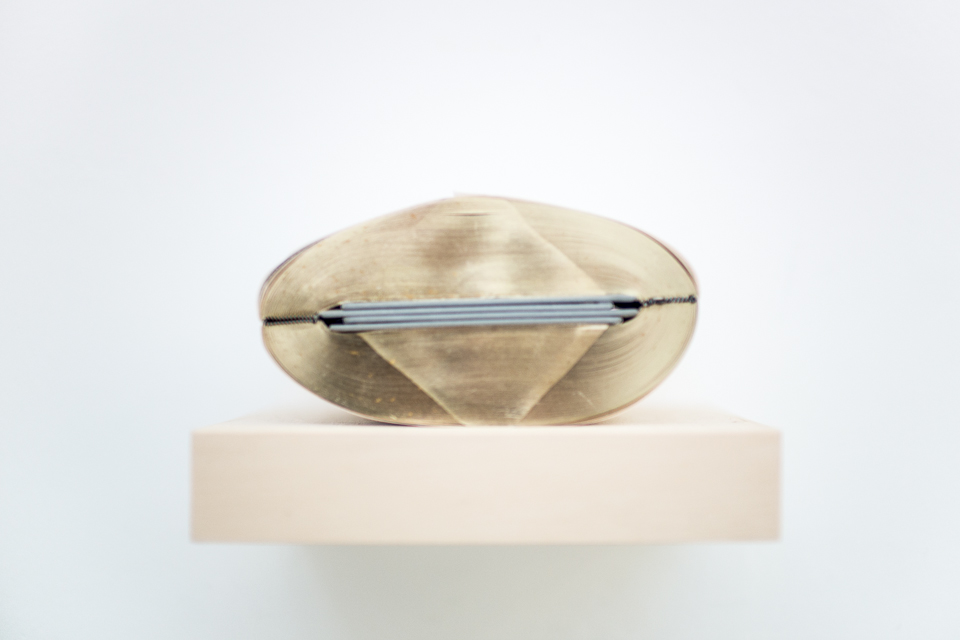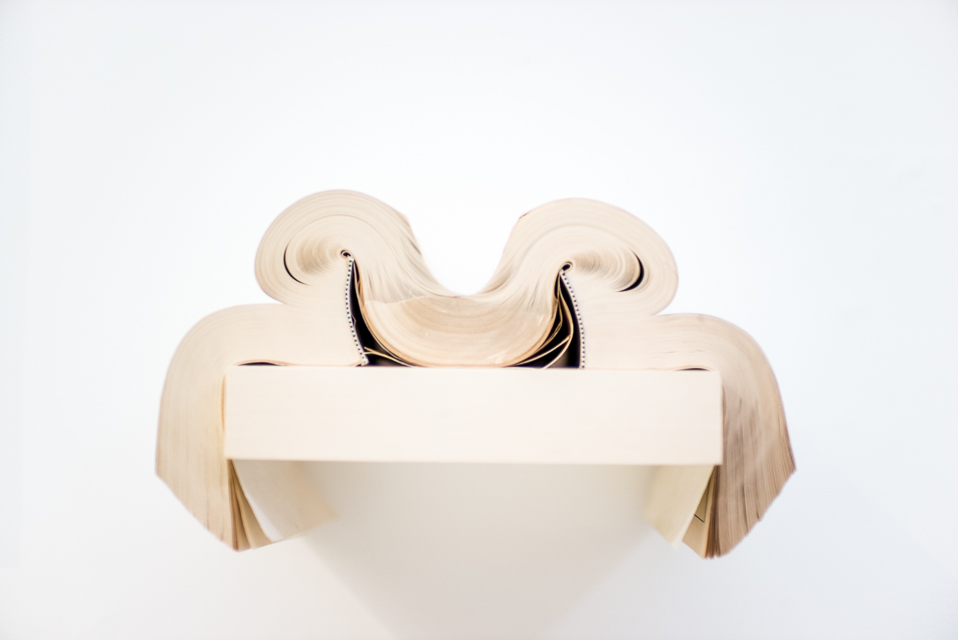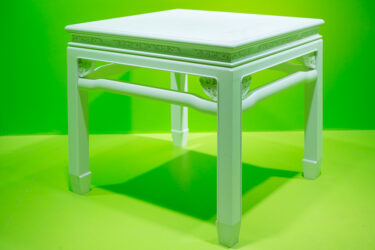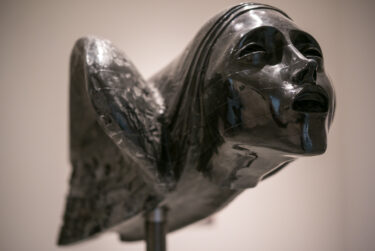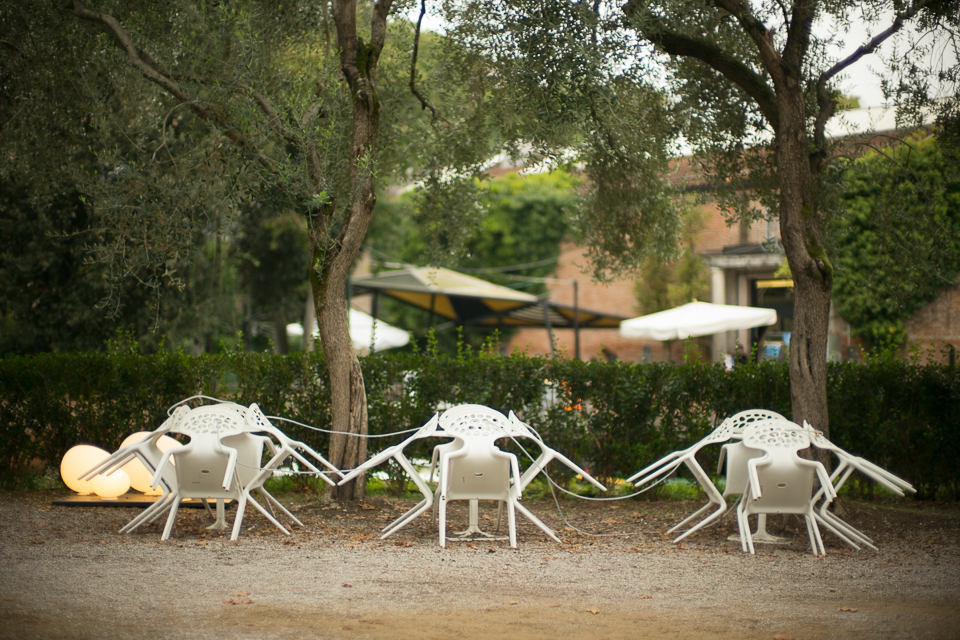The Biennale in Venice is one of the world’s premiere modern art exhibitions. It occurs every two years, where each participating country has a pavilion (or space in the larger pavilion), showcasing one or more artists in a curated exhibit for the duration of the festival. The show runs for about 4-5 months, every two years, and has pavilions in 2 large parks, The Giardini and The Arsenale, as well as a collection of satellite spaces around the city. It has been running since 1895, and has seen some remarkable exhibits during its history. It is presented as the equivalent of the “Olympics of Modern Art”, allowing each country to promote their best (either local artists or a chosen theme). It is a huge event, and with the most engaging of the pavilions, you want to linger and appreciate what is presented, so really, to see it properly you need days. So, this is just a few exhibits, mainly from the pavilions in The Giardini, which we visited on two afternoons. For a full listing of the artists, curators and managers of the exhibits, please see the Venice Biennale’s web site.
Here “we” are, photographing in a mirror of one of the exhibitions in the Grand Pavilion in The Giardini.
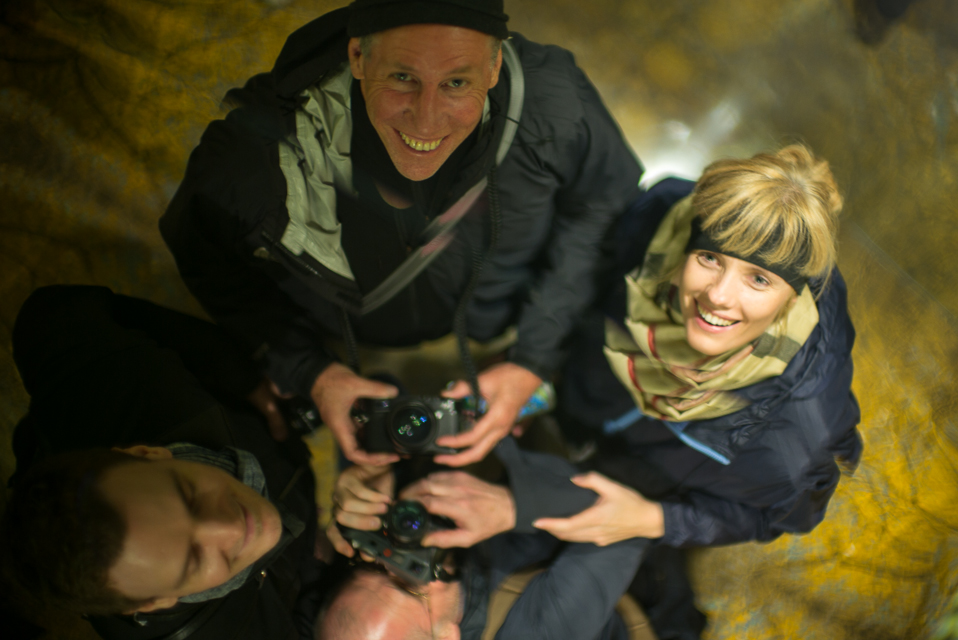
The theme for this year’s Biennale was “The Encyclopedic Palace” exhibit curated by Massimiliano Gioni, a theme you could see reflected in many of the exhibits.
First stop, Venezuela’s Urban Artists Collective, The Aesthetic’s of Subversion”
Second, the Russian’s, in perhaps the most interesting of exhibits: Danaë. Raining money, with only women allowed in the auditorium under umbrellas as it rains, and stern, typical Russians, stand unpreterbed(able) guarding, watching.
Another highlight was Poland’s “Everything Was Forever, Until It Was No More” by Konrad Smoleński. It was primarily auditory (where most, if not all, of the other exhibits were visual). In this exhibit, you enter the room as a group to listen. First the bells ring (loudly!), next that sound migrates to the speakers, and is processed, and finally, to the metal wall behind.
Ai Weiwei’s work Bang (2013) was featured in the German Pavilion
Australia, oh, Australia, land of empty spaces, flies, rusted metal thingies, and a corner of ye olde, battle-worn, Paperbacks, almost hidden away just in case you thought, you know, people actually, read books), oh, and half-hanging wall-paper. Leaves you wondering where the actual exhibit is, but I guess it captured some kind of caricature of the Aussie stereotype. It wasn’t that it was actually bad, just not very challenging, and seemed more appropriate as a promotional vehicle, “Come Visit Australia, Mate”, than a pinnacle of Australian contemporary art.
While in that region of the world, New Zealand’s pavilion (one of the satellites, in the vicinity of St Marks) was full of light (neon) and wonder (love the old glass flasks).
Yiqing Yin, the french artist, was one of six invited to create work for the Venice Pavilion for the theme of “The Silk Road”.
Ah… so, my friend Richard kept complaining that I was always in his shots, but he shows such intensity when he shoots, its hard not to want to catch him! But one thing that is worth remarking on is how much fun we had, and really how much fun (and irreverence) you can bring to modern art as its viewer. I think, myself included, we are often far too serious and reflective about some modern work that really should be treated with some degree of irreverence (that the art itself evokes), and at other times, interacted with as would a child, in a playful and inquisitive manner. So, while on that theme…
The Romanian exhibition was lost on all of us, five earnest young folks, pretending to pray Islamic style when we visited, in a room that was barren. Other times, other poses, and well, the temptation was too much, and we can only hope at some point that the Buddha was also a featured in their monolog or our posturing will have been grossly inappropriate!
And the length dedicated photographers will go to get that right shot (of me, again!) and another bunch of folks sitting around on the floor, but this time amidst the work of Rudolf Steiner and others in the Grand Pavilion’s Encyclopedic exhibitions. Quite engaging really.
There are many ways to engage with the various exhibits, sometimes taking time out to read is just the thing
And the ability to photograph any and everything was just fantastic, particularly as many museums will prohibit viewers from photographing (even the labels!). This and the following are from the US pavilion, quite fascinating, built on site over 12 months, by the artist Sarah Sze (from recollection using materials local to Venice)
And, when it all gets too much and you need a break, you can pop in to the English pavilion for a cup of tea. Wonderful!
A great companion to a cup of tea, is to sit down with a good book to read, courtesy of the Brazilian exhibit
Anyone seen the Taiwanese exhibit, I’m sure its around here somewhere?
Oh… Nice table, don’t you think?
There were some wonderful sculptural pieces throughout the different pavilions:
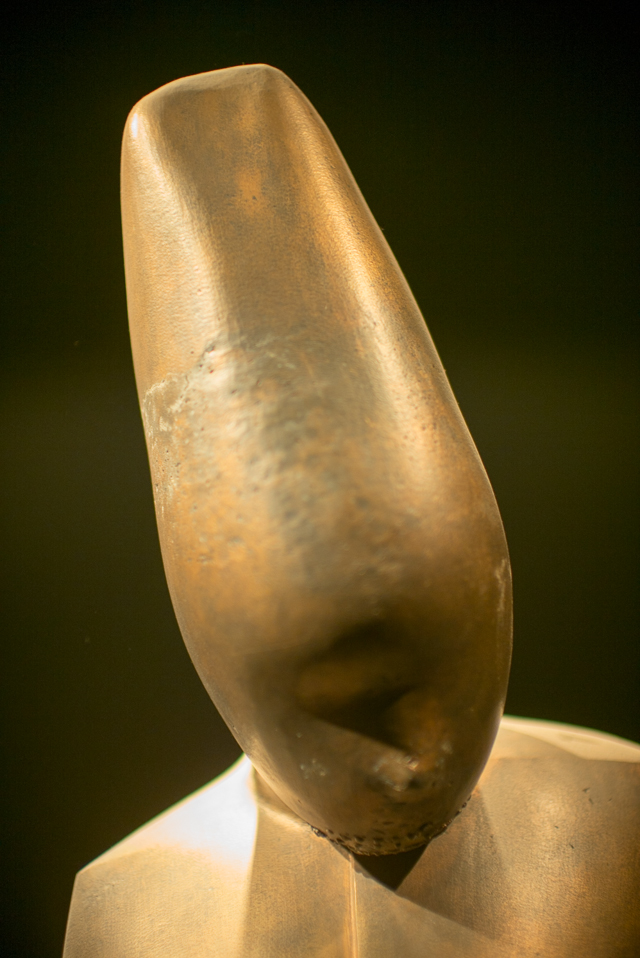
It is an event a thoroughly recommend and one I hope to return to in future years, and I’ve barely scratched the surface, and missed many, of the exhibits of this year’s festival. Put aside days to visit it all.
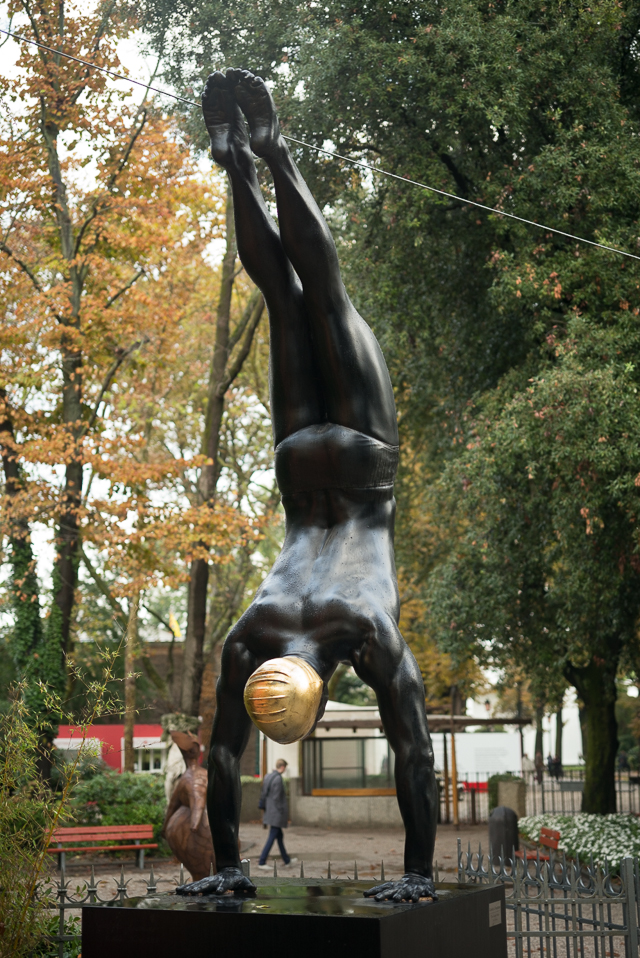
Perhaps it is the mood, the way that looking at contemporary art, and what contemporary art looks at, that educates the eye to see the possibilities everywhere. I think I’ll title this: “This is not 3 tables and chairs”. Ciao!
